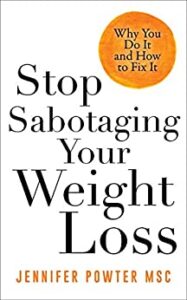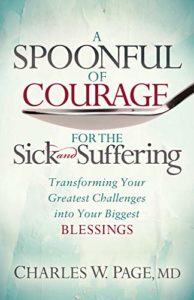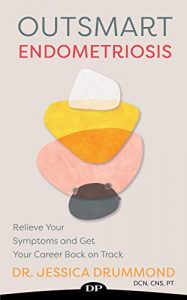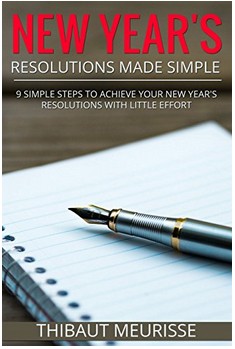January 2022
Girl, Alone (FBI Suspense Thriller) – Blake Pierce

FBI Agent Ella Dark has studied serial killers from the time she could read, devastated by the murder of her own sister. With her photographic memory, she has obtained an encyclopedic knowledge of every serial killer, every victim and every case. But when a serial killer strikes in the swamps of Louisiana, Ella soon comes to learn that the real thing is like nothing she ever expected.
“A MASTERPIECE OF THRILLER AND MYSTERY.
Blake Pierce did a magnificent job developing characters with a
psychological side so well described that we feel inside their minds,
follow their fears and cheer for their success. Full of twists, this
book will keep you awake until the turn of the last page.”
–Books and Movie Reviews, Roberto Mattos (re Once Gone)
GIRL, ALONE (An Ella Dark FBI Suspense Thriller—Book 1) is the debut novel in a long-anticipated new series by #1 bestseller and USA Today bestselling author Blake Pierce, whose bestseller Once Gone (a free download) has received over 1,000 five star reviews.
Long Road to Mercy – David Baldacci
Number one bestseller Long Road to Mercy is the heart-pounding first novel in the FBI Special Agent Atlee Pine series by bestselling author David Baldacci.
FBI Special Agent Atlee Pine has learnt three lessons in life:
Some wounds never heal.
Atlee’s twin sister, Mercy, was abducted from their bedroom over thirty years ago, and Atlee has spent every day since wondering what happened to her.
Time doesn’t lessen your pain.
The prime suspect, notorious serial killer Daniel James Tor, is in a high-security prison, but with no confession, Atlee continues to search for her sister, even as Tor taunts her from jail.
But she can always make a difference.
Wracked by survivor’s guilt, Atlee joined the FBI to hunt down killers like Tor. Assigned to the remote wilds of the Western United States, she has spent years honing her skills and building her endurance, always with one eye on the ultimate goal.
Now, Atlee Pine is tasked with an investigation which begins with a missing person in the Grand Canyon. And ends with a discovery much more sinister and far-reaching.
Girl Missing: An addictive suspense mystery novel (A Detective Kaitlyn Carr Mystery Book 1) – Kate Gable
⭐⭐⭐⭐⭐ “The twists come at you at breakneck pace.” – Hideaway1355, Amazon review
When her 13-year-old sister vanishes on her way back from a friend’s house, Detective Kaitlyn Carr must confront demons from her own past in order to bring her sister home.
The small mountain town of Big Bear Lake is only three hours away but a world away from her life in Los Angeles. It’s the place she grew up and the place that’s plagued her with lies, death and secrets.
In Girl Missing, as Kaitlyn digs deeper into the murder she is investigating and her sister’s disappearance, she finds out that appearances are misleading and few things are what they seem.
A murderer is lurking in the shadows and the more of the mystery that Kaitlyn unspools the closer she gets to danger herself.
Can Kaitlyn find the killer and solve the mystery of her sister’s disappearance before it’s too late?
What happens when someone else is taken?
This is a suspenseful thriller perfect for fans of James Patterson, Leslie Wolfe, Lisa Regan, L. T. Vargus and Karin Slaughter. It has mystery, angst, a bit of romance and family drama.
Girl Lost: A Detective Kaitlyn Carr Mystery (book 2) by Kate Gable
Detective Kaitlyn Carr’s 13-year-old sister is still missing and now her friend has disappeared as well under very similar circumstances. The FBI is called to Big Bear Lake and the agent assigned to the case is none other than Luke Galvinson, a man from her past.
Meanwhile, back in Los Angeles, Kaitlyn must investigate the case of a newlywed with a secret pregnancy who went missing after a business trip.
Her husband isn’t very concerned. Why didn’t he want to report her missing?Did she run away with someone else, did someone take her or worse?
Kaitlyn must not only split her time between these cases but also go further down the rabbit hole of the place she once called home.
Nothing is what it seems.
No one is who they are.
Everyone has a secret.
Can Kaitlyn uncover the truth in time to prevent another death?
This is a suspenseful thriller perfect for fans of James Patterson, Leslie Wolfe, Lisa Regan, L. T. Vargus and Karin Slaughter. It has mystery, angst, a bit of romance and family drama.
Not Like Us (An Ilse Beck FBI Suspense Thriller—Book 1) – Ava Strong
She barely escaped a serial killer in the Pacific Northwest—and now, he is hunting her again. Or is he? Ilse Beck, a niche expert in serial killer survivors, has faced many monsters, and seen shocking cases—but this one may be the worst of all.
In this bestselling mystery series, FBI Special Agent Ilse Beck, victim of a traumatic childhood in Germany, moved to the U.S. to become a renowned psychologist specializing in PTSD, and the world’s leading expert in the unique trauma of serial-killer survivors. By studying the psychology of their survivors, Ilse has a unique and unparalleled expertise in the true psychology of serial killers. Ilse never expected, though, to become an FBI agent herself.
Nothing can prepare Ilse for her new patient, a survivor from a near murder by a serial killer. The patient, paranoid, believes she is still being watched by the killer. And when the killer claims a new victim, the FBI needs Ilse’s help to solve it.
Not Like Us – This case and this killer, though, strike too close to home for Ilse’s comfort. When she realizes that she herself is being targeted, the trauma of her own past comes full circle.
Can Ilse use her brilliant instincts to enter the mind of this killer and stop him before he strikes again?
And will she save herself?
A dark and suspenseful crime thriller, the bestselling ILSE BECK series is a breathtaking page-turner, an unputdownable mystery and suspense novel. A compelling and perplexing psychological thriller, rife with twists and jaw-dropping secrets, it will make you fall in love with a brilliant new female protagonist, while it keeps you shocked late into the night.
Books #2-#7 in the series—NOT LIKE HE SEEMED, NOT LIKE YESTERDAY, NOT LIKE THIS, NOT LIKE SHE THOUGHT, NOT LIKE BEFORE, and NOT LIKE NORMAL—are also available.
“Gripped me the whole way… The plot has many twists and turns, but it is the ending, which I did not see coming at all, that totally defines this book as one of the most riveting that I have read in years.”
–Amazon reviewer
⭐⭐⭐⭐⭐
*
June 2020
Love thrillers/action ebooks and martial arts (specifically Aikido)?
Then this ebook (UK – US) is for you! – FREE as of June 2020.
For fans of suspense thrillers – a tense tale of murder, conspiracy and revenge.
When a murder case lands on the desk of an experienced cop with an unblemished record, it looks like business as usual. But solving this one will test his principles right to the breaking point …
One sunny summer morning in the City of London, an archaeological researcher just back from India is gunned down as he leaves a coffee shop. Who did it, and why? That’s the question facing DCI Nick Severance as he investigates his latest murder case.
When the answers lead to a conspiracy that could endanger the lives of thousands of innocent people, Nick has his hands full. But when they also threaten to destroy the woman he loves, he makes a choice that changes his life forever.
If you like your thrillers with an international setting and a touch of the exotic, then this one is for you (UK). (US-International link)
Please note: This is a free service and this page may use AFFILIATE LINKS. Enjoy reading these books!


![Girl Missing: An addictive suspense mystery novel (A Detective Kaitlyn Carr Mystery Book 1) by [Kate Gable]](https://m.media-amazon.com/images/I/41R2zp4cYFL.jpg)
![Girl Lost: A Detective Kaitlyn Carr Mystery by [Kate Gable]](https://m.media-amazon.com/images/I/51yHT5gxTuL.jpg)
![Not Like Us (An Ilse Beck FBI Suspense Thriller—Book 1) by [Ava Strong]](https://m.media-amazon.com/images/I/41jy6evJ3VL.jpg)






![Stories of Divine Healing: Supernatural Testimonies that Ignite Faith for Your Healing by [Clark, Randy]](https://images-eu.ssl-images-amazon.com/images/I/51j5KKD%2B5JL.jpg)












